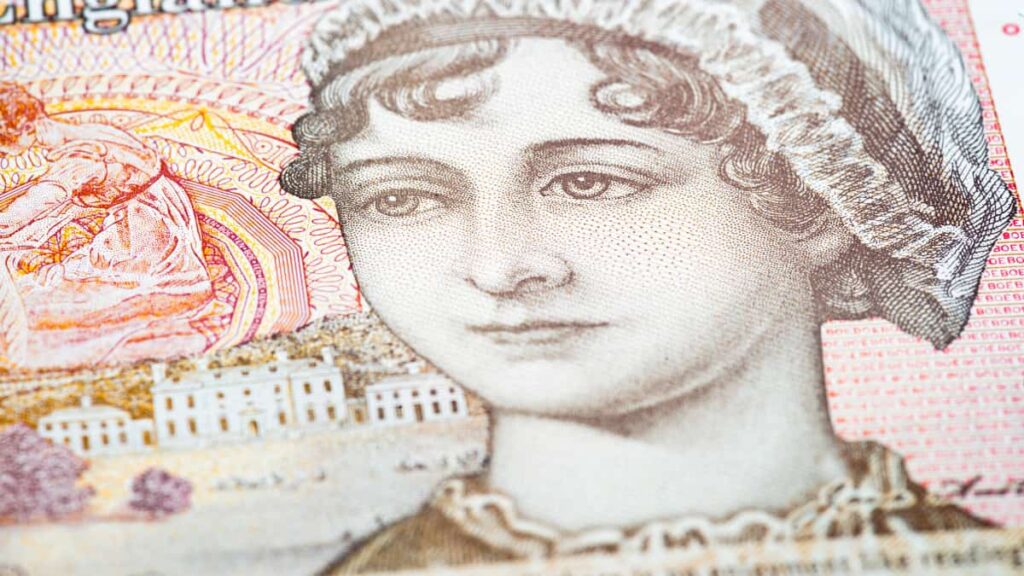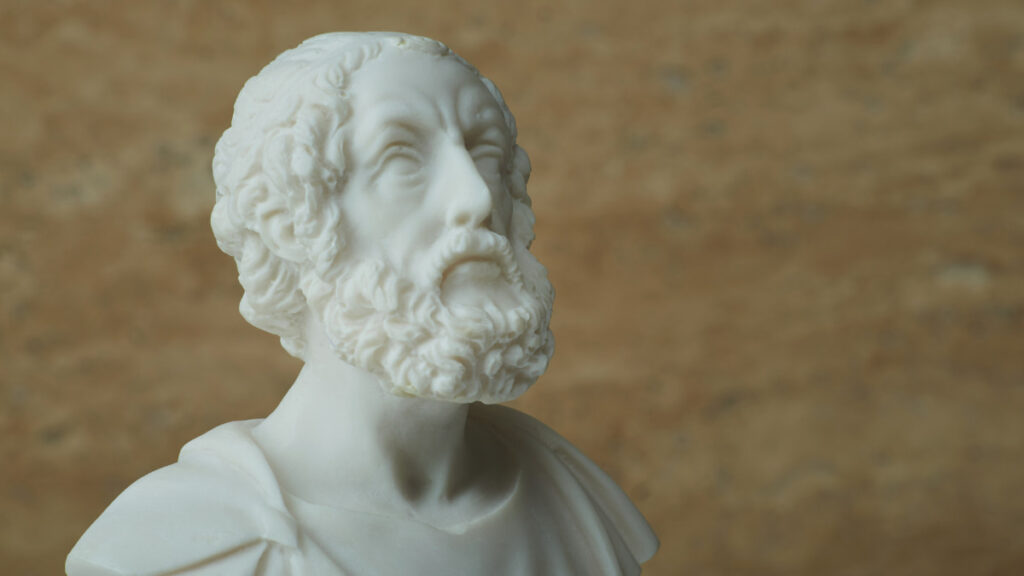How did classic authors influence laws, revolutions, and your favorite movies?

The most influential writers in history didn’t just write — they helped reshape law, challenge empires, and ignite revolutions through words.
From ancient Greece to modern Europe, these literary voices echoed through courts, classrooms, protests, and even blockbuster films worldwide.
Curious how ink on a page could alter the world? Explore how these authors left a legacy still shaping us today.
Defining Influence in Literature
A writer’s influence extends far beyond bookshelves — it can redefine politics, spark revolutions, or even alter educational norms across generations.
Understanding literary influence means going beyond popularity. It’s about long-term impact, intellectual reach, and the ability to shape global thought.
What Makes a Writer Truly Influential?
The most influential writers don’t just entertain — they shift paradigms. Their words question power, shape belief systems, and inspire action worldwide.
While many writers enjoy fame, only a few spark cultural transformations that echo for centuries across nations and ideologies.
Their impact stretches across law, ethics, identity, and collective memory — proving that storytelling holds more power than most weapons.
Beyond Fame: Cultural and Global Reach
Popular classic authors often gain influence through timeless themes and universal truths that transcend cultures and languages.
Authors like Tolstoy and Shakespeare aren’t just widely known — they’re pillars in education, philosophy, and pop culture across continents.
Their works appear in school curricula, diplomatic speeches, and modern art, making their presence global, persistent, and layered with meaning.
Influence vs. Popularity: Not the Same Thing
Being widely read isn’t enough to be considered one of the most influential writers — what truly matters is longevity, depth, and lasting relevance.
While J.K. Rowling may lead in sales, figures like Dostoevsky and Confucius continue to shape moral reasoning, legal structures, and cultural identity.
As Stanford professor Elaine Treharne explains, books endure because they are “artifacts of enduring human experience, embedded with memory, emotion and cultural authority” — and so do the ideas within them.
Ancient Voices That Still Resonate
Long before printing presses and social media, ancient writers laid the foundation for philosophy, governance, and storytelling traditions still alive today.
Their words influenced legal codes, education, religion, and even military strategies — proving that influence often begins in antiquity.
Homer and the Birth of Western Narrative
Homer ranks among the most influential writers because his epics shaped not just literature, but Western ideals of heroism, fate, and glory.
His Iliad and Odyssey inspired everything from Greek education to Hollywood films — bridging millennia of storytelling.
Homer’s vision of human struggle, divine will, and honor still echoes in everything from novels to national myths.
Confucius and Eastern Ethical Legacy
Most read books in the world often include Confucian texts, foundational to East Asian education, governance, and interpersonal ethics.
Confucius’ teachings, compiled in The Analects, remain central in schools and leadership models throughout China, Korea, and Japan.
His legacy continues not through fiction but through civic life — from moral codes to political systems rooted in Confucian ideals.
Plato’s Ideas in Modern Law and Politics
Plato is one of the most influential writers due to his philosophical reach into justice, governance, and the very idea of truth.
He founded the first “university” — the Academy — and imagined republics where reason ruled over power or wealth.
His concepts still frame debates in politics, law, and ethics — proving that philosophical writing can reshape entire worldviews.
The Power of the Pen in Revolutions
Writers have long been catalysts for revolution, using words to challenge regimes, ignite movements, and reshape political ideologies across continents.
When ideas become dangerous, literature becomes powerful — and in every revolution, a writer was there before the first shot was fired.
Voltaire, Rousseau, and the French Enlightenment
Among the most influential writers, few rival Voltaire and Rousseau, whose works laid the philosophical foundation for the French Revolution.
Their critiques of monarchy, inequality, and organized religion helped fuel the people’s will to fight for liberty and reform.
Voltaire’s wit and Rousseau’s idealism sparked not just rebellion, but entire political theories that live on in modern democracies.
Revolutionary Writing in Latin America
Popular classic authors in Latin America used fiction and essays to expose colonialism, dictatorship, and social injustice — often at great personal risk.
Writers like José Martí and Eduardo Galeano crafted texts that unified independence movements and challenged U.S. influence in the region.
Their legacy shaped constitutions, classrooms, and protest banners — literature as resistance, memory, and identity all in one.
Marx and the Global Echo of Ideas
Karl Marx stands as one of the most influential writers because his theories reshaped global economies, labor laws, and geopolitical power structures.
His Communist Manifesto continues to provoke, guide, or challenge regimes worldwide — far beyond its 19th-century origins.
In his introduction to The Communist Manifesto: A Modern Edition, historian Eric Hobsbawm noted, “The world described by Marx and Engels in 1848 […] is recognizably the world we live in today.”
Women Who Changed the Canon
For centuries, female voices were sidelined — yet many became literary giants whose works shaped social progress, imagination, and critical thought.
These women redefined who gets to write, what counts as literature, and how stories shape gender, power, and identity.
Mary Shelley and the Politics of Imagination
Mary Shelley stands among the most influential writers for blending science, philosophy, and social anxiety into a single timeless novel.
Her Frankenstein didn’t just pioneer science fiction — it critiqued power, isolation, and unchecked ambition long before it was popular.
Shelley showed that imagination could be political — and that literature could challenge both personal and institutional monsters.
Feminist Writers and Social Reform
Popular classic authors like Simone de Beauvoir, Virginia Woolf, and Audre Lorde used essays, fiction, and poetry to fight inequality.
Their writing helped define feminism, human rights, and identity politics, echoing in education, activism, and international law.
Through gender, class, and race, these authors reframed social justice as something that literature could actively pursue and shape.
From Austen to Angelou: Literary Legacy

Jane Austen, Toni Morrison, and Maya Angelou rank among the most influential writers by weaving private stories with powerful public critique.
Their characters reflect society, challenge norms, and offer voices where silence once reigned — in race, class, gender, and history.
Their literary legacies extend from libraries to movements, reminding us that personal truth can inspire collective transformation.
Religious and Philosophical Impact
Some of the most influential writers didn’t write novels — they wrote the very ideas that continue to guide moral, legal, and spiritual life.
Their texts form the backbone of religious doctrine, ethical systems, and philosophical traditions still practiced around the world.
St. Augustine and the Christian Literary Tradition
St. Augustine shaped Western thought through deeply personal yet theologically complex works like Confessions and The City of God.
He’s one of the most influential writers in Christian history, blending classical philosophy with spiritual reflection that still inspires scholars and clergy.
His writing defined sin, grace, and the soul — ideas that became central to Catholic and Protestant teachings for centuries.
Authors Who Bridged Faith and Culture
Most read books in the world often include sacred texts and their interpreters — writers who translated belief into universal ethics.
Thinkers like Rumi, Thomas Aquinas, and Maimonides wrote works that shaped mysticism, rationalism, and interfaith dialogue.
Their influence lives in sermons, legal systems, and cultural codes across Judaism, Islam, and Christianity.
The Qur’an’s Literary Echo Through Centuries
Although the Qur’an itself is considered divine, many scholars and poets became influential through its interpretation, commentary, and adaptation.
Writers like Al-Ghazali and Ibn Khaldun built philosophical systems and historiography rooted in Qur’anic ethics and structure.
They remain among the most influential writers in Islamic culture, bridging theology with law, science, and social theory.
Global Reach: Who Influenced the World Most?
Influence can be measured not only in ideas, but in numbers: languages translated, books sold, and global visibility over time.
Some authors crossed every border, turning ink into impact through massive circulation and cultural adaptability.
Ranking Authors by Translations and Reach

To understand who the most influential writers truly are, we can look at hard data — translations, editions, and global distribution.
| Author | Languages Translated | Estimated Copies Sold | Primary Influence Zone | Most Influential Work |
|---|---|---|---|---|
| William Shakespeare | 100+ | 4+ billion | Global (Theatre, Literature) | Hamlet |
| Agatha Christie | 100+ | 2+ billion | Global (Mystery genre) | And Then There Were None |
| Leo Tolstoy | 80+ | 400+ million | Europe, Asia (Philosophy) | War and Peace |
| Paulo Coelho | 85+ | 320+ million | Global (Spiritual Fiction) | The Alchemist |
| Antoine de Saint-Exupéry | 300+ | 200+ million | Global (Children’s Literature) | The Little Prince |
| Fyodor Dostoevsky | 70+ | 250+ million | Global (Existentialism, Ethics) | Crime and Punishment |
| J.R.R. Tolkien | 60+ | 600+ million | Global (Fantasy, Myth, Language) | The Lord of the Rings |
| Franz Kafka | 65+ | 150+ million | Europe (Modernism, Bureaucracy) | The Metamorphosis |
| Jane Austen | 60+ | 200+ million | Anglo World (Society & Gender) | Pride and Prejudice |
| Victor Hugo | 75+ | 200+ million | Europe, Latin America (Justice) | Les Misérables |
| Charles Baudelaire | 50+ | 100+ million | Europe (Poetry, Aesthetics) | The Flowers of Evil |
| Homer | 70+ | 300+ million* | Global (Foundational Epic) | The Odyssey |
These writers shaped minds across borders — their influence measured not just in quality, but in cultural saturation.
Most Read Books in the World Today
From Bibles to bestsellers, the most read books in the world often reflect both spiritual devotion and cultural fascination.
Religious texts, along with classics like Don Quixote and Harry Potter, appear on almost every continent in hundreds of languages.
Reading habits may shift, but the global presence of certain books remains astonishingly consistent over time.
The Numbers Behind Literary Influence
Being among the most influential writers isn’t just about reach — it’s about sustained relevance through war, peace, and generational change.
Translations show how widely a writer’s voice travels, but longevity and adaptation reflect lasting human connection.
That’s why sales, presence in curricula, and influence on thought all matter when ranking true literary impact.
Why Popularity Isn’t Everything
Some authors sell millions but fade fast. Others, less famous in their time, reshape future generations in quiet, powerful ways.
Influence isn’t about headlines — it’s about depth, endurance, and the ideas that linger long after trends disappear.
Popular Classic Authors with Deeper Meaning
The most influential writers often emerge among popular classic authors whose depth continues to resonate across cultures and time.
Authors like Dickens and Dostoevsky didn’t just entertain — they shaped social values, criminal justice, and moral discourse.
Their works remain central in philosophy, psychology, and education, showing how classic doesn’t mean outdated — it means foundational.
Bestsellers vs. Cultural Impact
High sales don’t guarantee literary influence. These factors reveal how deeper impact can outlast popularity:
- Curriculum Presence: Are they studied globally in schools and universities?
- Cultural Adaptation: Have their ideas crossed borders and media?
- Intellectual Influence: Did they inspire academic, legal, or political movements?
- Reinterpretation Over Time: Are their works still reimagined in modern contexts?
- Institutional Legacy: Did they shape values adopted by nations or religions?
What lasts isn’t always what trends.
Rediscovered Voices in Modern Times
Some of the most influential writers were overlooked for decades — or even centuries — before being embraced globally.
Figures like Zora Neale Hurston or Sappho gained renewed attention as society caught up with their radical, visionary voices.
Their rediscovery proves that influence isn’t just about presence — it’s about timing, relevance, and recognition at last.
Modern Authors Carrying the Torch
The literary torch didn’t dim with the classics — today’s most influential writers shape how we think about technology, identity, and global justice.
Their words ripple through classrooms, media, protests, and policymaking, showing that influence remains a living force.
Orwell, Achebe, and Beyond: Legacy in Motion
George Orwell and Chinua Achebe remain among the most influential writers for their insights into power, propaganda, and postcolonial identity.
Their works, from 1984 to Things Fall Apart, appear in syllabi worldwide and shape how societies view truth, resistance, and history.
Modern writers like Margaret Atwood and Arundhati Roy carry forward that same fire — political, poetic, and profoundly global.
Writers Influencing Education and Media
Most read books in the world today include authors who blend deep storytelling with urgent cultural commentary and public discourse.
Writers like Malala Yousafzai, Ta-Nehisi Coates, and Chimamanda Ngozi Adichie speak across books, lectures, and viral videos.
Their voices influence curriculum, journalism, and activism — proving that writers still shape how entire generations learn and speak.
Digital Age Thinkers with Lasting Power
Even in the digital era, some of the most influential writers harness new platforms to spark enduring conversations.
Yuval Noah Harari, Roxane Gay, and Neil Gaiman bridge genres and media, creating work that shapes public ethics and imagination.
Their presence in TED Talks, social media, and streaming platforms shows that today’s literary giants speak in many forms.
Why Words Still Move the World
Influence isn’t a title — it’s a legacy. These writers didn’t just publish books; they shaped how we govern, learn, imagine, and resist.
Their words outlived empires, crossed oceans, and continue to ignite revolutions of thought in every language and era.
Curious about how books themselves survived regimes, wars, and censorship?
Let’s turn the page to those who risked everything to protect the written word — from hidden libraries to underground book couriers.



